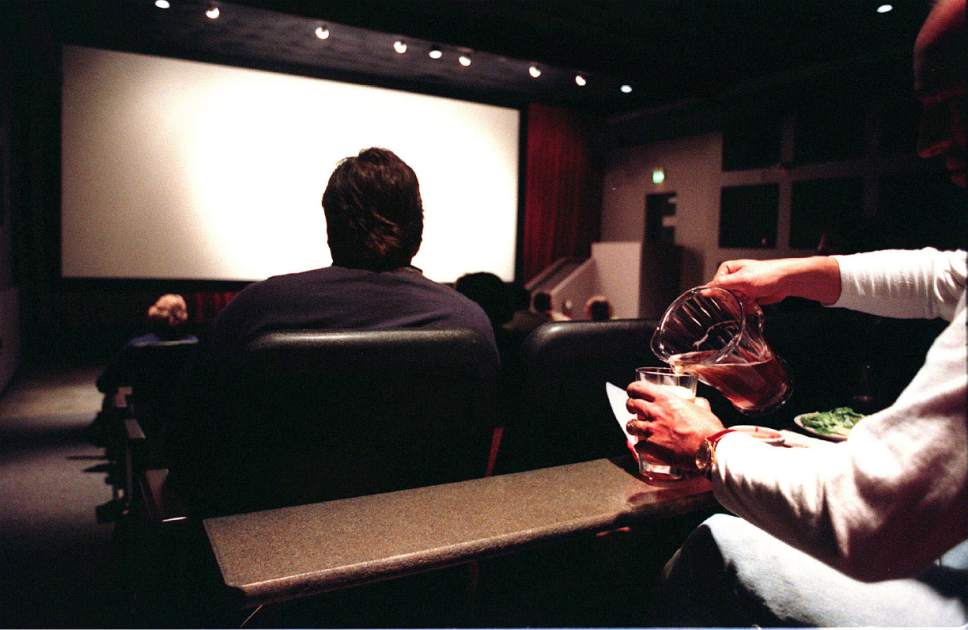This is an archived article that was published on sltrib.com in 2017, and information in the article may be outdated. It is provided only for personal research purposes and may not be reprinted.
In a federal court case where Brewvies is suing the Utah Department of Alcoholic Beverage Control (DABC) for punishing the cinema pub for serving alcohol during screenings of "Deadpool," both sides have filed motions to exclude the other party's "expert" testimony. Court documents filed Friday show that the DABC has asked a judge to exclude a report and opinion submitted by Kyle Bishop, describing Bishop as "not qualified to opine regarding negative secondary effects" of the mixture of alcohol and the movie, and adding that his opinion that the R-rated "Deadpool" is not obscene and not pornography is unnecessary.
Bishop is an English professor at Southern Utah University, "not a psychologist, criminologist or statistician," the motion states. He has "not identified any tests, experiments, statistics, data or other research that he has conducted, or upon which he relies" for his opinion.
The DABC also asked that testimony from Bruce Parker be excluded, stating he "is not qualified to opine regarding secondary effects, and his testimony is not based on sufficient facts or data." Parker is a certified planner, an adjunct professor of architecture and planning, and the principal at a planning consultancy firm, the motion says.
"While Mr. Parker might be qualified to opine regarding land use or zoning surrounding Brewvies, he is not qualified to opine regarding negative secondary effects," the DABC wrote, adding he is "no more qualified than any other professional to render an opinion." Brewvies submitted a motion of its own, which seeks to disqualify the testimony of DABC expert witness William George, a psychology professor at the University of Washington.
George is "not qualified to render opinions related to any alleged adverse secondary effects" of the cinema serving alcohol while showing mainstream R-rated movies "that contain passing nudity, or otherwise harmlessly violate" Utah law, the motion says.
George has conducted laboratory experience to study the effects of alcohol and viewing pornography, the motion says, but in his deposition, George described "Deadpool as "action superhero parody, comedy," and said it made him laugh.
He also told attorneys in his deposition that "it's completely hypothetical" whether or not the presence of a scene with sexual content — like one from "Deadpool" — will result in "sexual disinhibition and aggressiveness."
"I don't know the answer to that," George said in his deposition.
While watching the movie "can" drive viewers to drink more or be more sexually aggressive, George doesn't necessarily believe it "will" do so, the motion states. George also had no opinion as to whether there have been adverse secondary effects in the community where Brewvies is located.
U.S. District Judge David Nuffer had not responded to either motion as of Tuesday, according to the court docket. A three-day bench trial is set to begin July 10 before Nuffer.
The cinema pub was cited by the DABC for violating Utah's liquor laws after three undercover agents from the Utah Bureau of Investigation went there on Feb. 26, 2016, bought tickets, ordered beer and watched "Deadpool." The undercover officers reported seeing sex scenes, as well as some brief male frontal nudity.
Brewvies is facing a maximum $25,000 fine and a 10-day suspension of its liquor license. The penalty is high because Brewvies' was cited in 2011 because of male genitalia pictured in "The Hangover Part II." In that instance, Brewvies paid a $1,627 fine.
This time Brewvies is fighting back, arguing in their lawsuit that the liquor laws are having a chilling effect on its First Amendment rights.
Twitter: @mnoblenews



